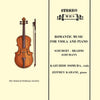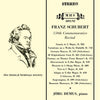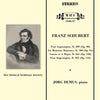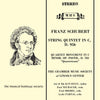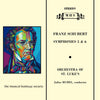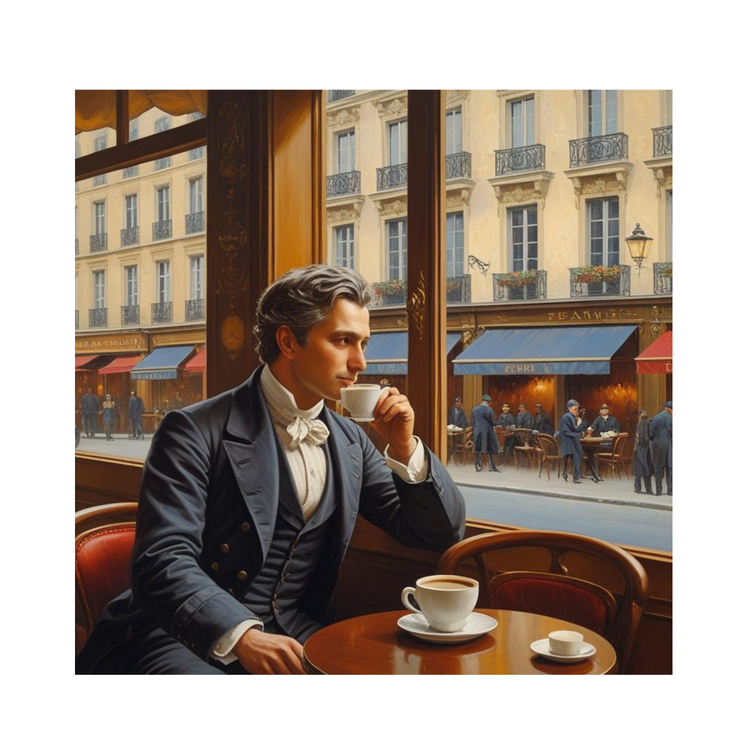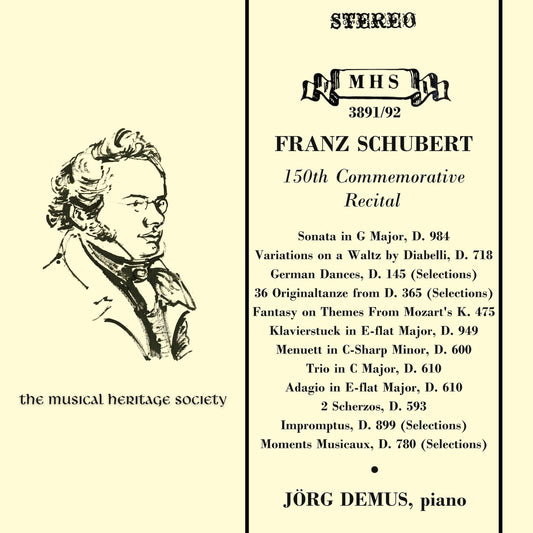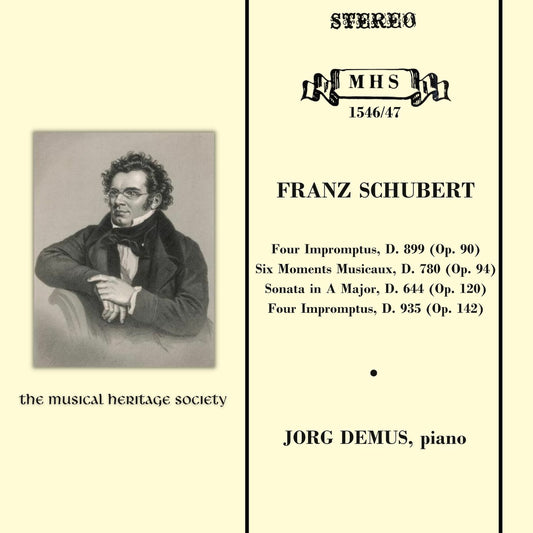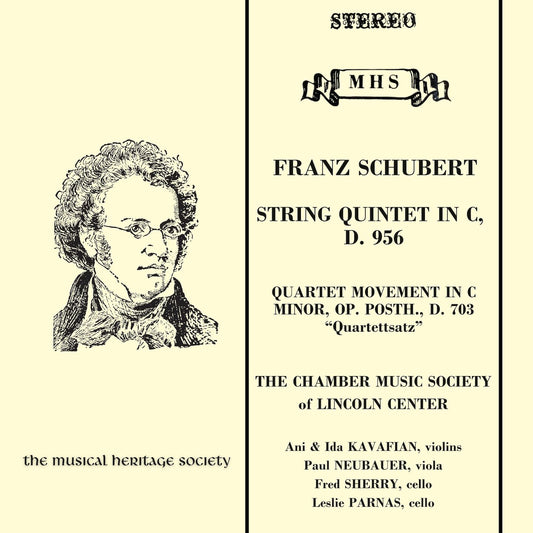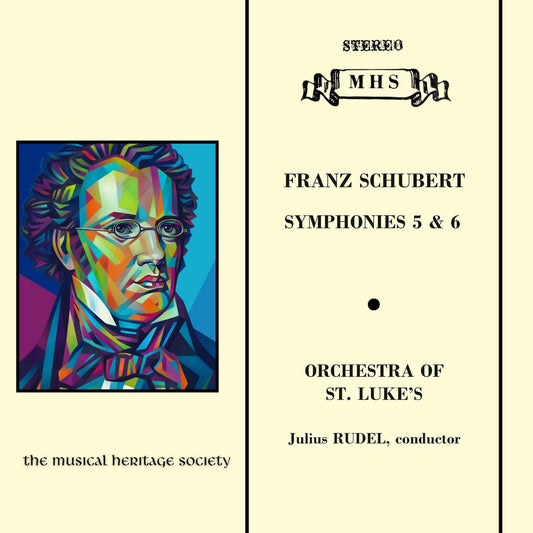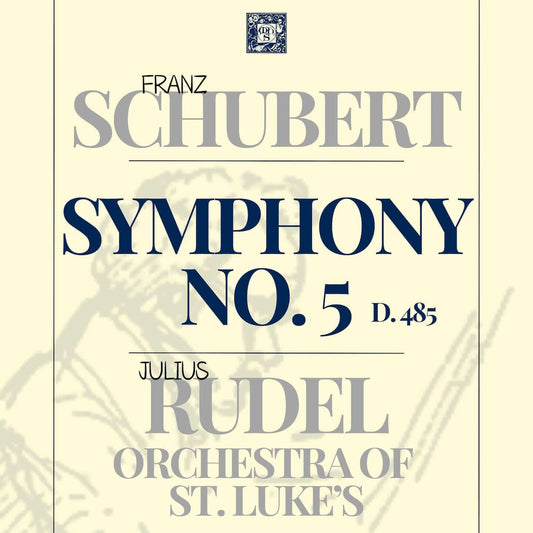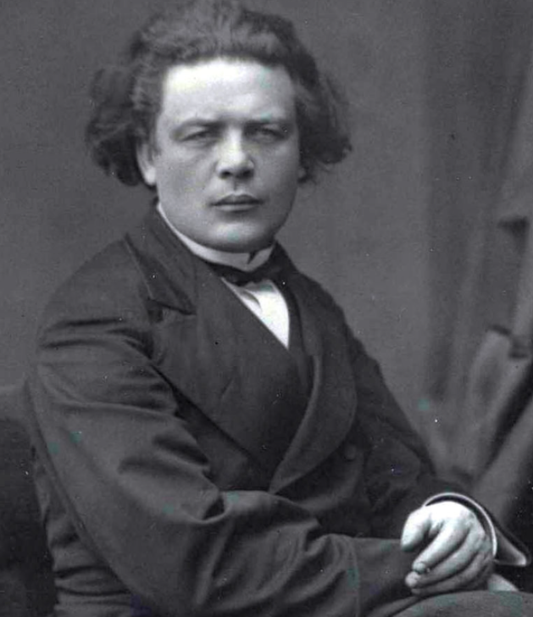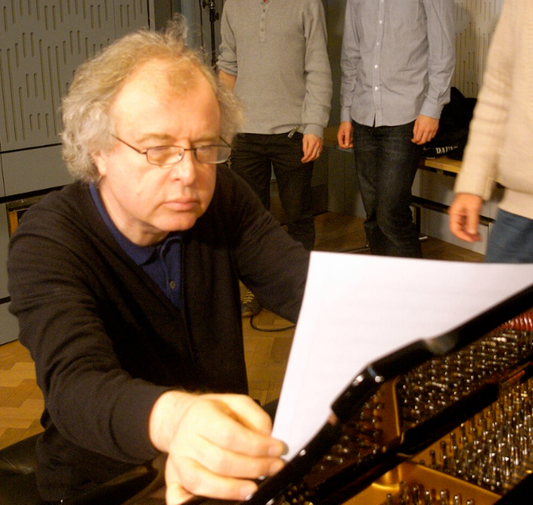Collection: FRANZ SCHUBERT (1797 – 1828)
Franz Peter Schubert (January 31, 1797 – November 19, 1828) stands as a pivotal figure bridging the Classical and Romantic eras, an Austrian composer of astonishing melodic genius and emotional depth whose vast output, particularly in the realm of song (Lied), remains central to the repertoire. Despite a tragically short life plagued by financial insecurity and illness, Schubert produced an extraordinary body of work characterized by lyrical beauty, harmonic innovation, and profound expressiveness.
Born in Himmelpfortgrund, a suburb of Vienna, Schubert came from a modest background; his father was a schoolmaster. His exceptional musical talents were evident early, and he received instruction on violin and piano from his father and older brother Ignaz, as well as organ lessons from the local parish church organist. His beautiful voice earned him a place as a choirboy in the prestigious Stadtkonvikt (Imperial Seminary) in 1808, where he received a more formal musical education, studying theory and composition with Antonio Salieri, among others. During these years, he began composing prolifically, already displaying his characteristic gift for melody.
Following his family's wishes, Schubert briefly trained and worked as a schoolteacher alongside his father from 1814 to 1818. He found the work deeply uncongenial, however, and longed to dedicate himself entirely to composition. This period, despite his dissatisfaction, was incredibly fertile; in 1815 alone, he composed over 140 songs, two symphonies, church music, and other works. It was during this time he composed some of his most famous early Lieder, including "Gretchen am Spinnrade" (Gretchen at the Spinning Wheel) and "Erlkönig" (The Erlking), both settings of Goethe poems that showcased his revolutionary approach to song, perfectly capturing the texts' drama and psychological depth through both voice and piano accompaniment.
Leaving teaching behind, Schubert embraced a precarious, bohemian existence in Vienna, relying on the support of a close circle of friends – poets, painters, musicians, and intellectuals – who admired his genius. These friends often organized informal gatherings, known as "Schubertiades," where his music, particularly his songs and piano pieces, were performed in an intimate setting. Despite the warmth of this circle, Schubert struggled financially throughout his life, finding publishers often unwilling to take risks on his longer, more complex works and frequently offering him meager fees for his popular songs and dances.
Schubert's most significant contribution lies in the genre of the Lied. He composed over 600 songs, setting texts by poets such as Goethe, Schiller, Heine, and his friend Johann Mayrhofer. He elevated the Lied from a simple parlour amusement to a major art form, creating a true partnership between the voice and piano, where the accompaniment actively participates in illustrating the text's imagery and emotional nuance. His two great song cycles, Die schöne Müllerin (The Fair Maid of the Mill, 1823) and Winterreise (Winter Journey, 1827), both settings of poems by Wilhelm Müller, represent pinnacles of the genre, exploring themes of love, loss, alienation, and despair with unparalleled intensity.
While revered for his songs, Schubert also excelled in instrumental music. He composed numerous masterpieces for piano, including sonatas, impromptus, Moments musicaux, dances, and works for piano four-hands (like the Fantasia in F minor). His chamber music includes the beloved Piano Quintet in A major ("Trout," D. 667), the dramatic String Quartet No. 14 in D minor ("Death and the Maiden," D. 810), and the sublime String Quintet in C major (D. 956). He completed seven symphonies and left others unfinished, most famously the Symphony No. 8 in B minor ("Unfinished," D. 759). His final symphony, the monumental Symphony No. 9 in C major ("Great," D. 944), admired by Schumann and later championed by Mendelssohn, demonstrates his mastery of large-scale orchestral form.
Schubert's musical style is characterized by its seemingly effortless lyricism, harmonic richness often featuring bold modulations to distant keys, rhythmic vitality, and profound emotional range, from idyllic charm to intense pathos.
In the early 1820s, Schubert contracted syphilis, an illness that would shadow the remainder of his short life, causing periods of intense suffering but also bursts of astonishing creative energy. He died in Vienna on November 19, 1828, at the age of just 31, likely from complications related to his illness, possibly combined with typhoid fever. He was buried, according to his wish, near Beethoven, whom he deeply admired. Though much of his larger instrumental work gained recognition only posthumously, Franz Schubert's legacy as a supreme melodist and the undisputed master of the art song endures.

